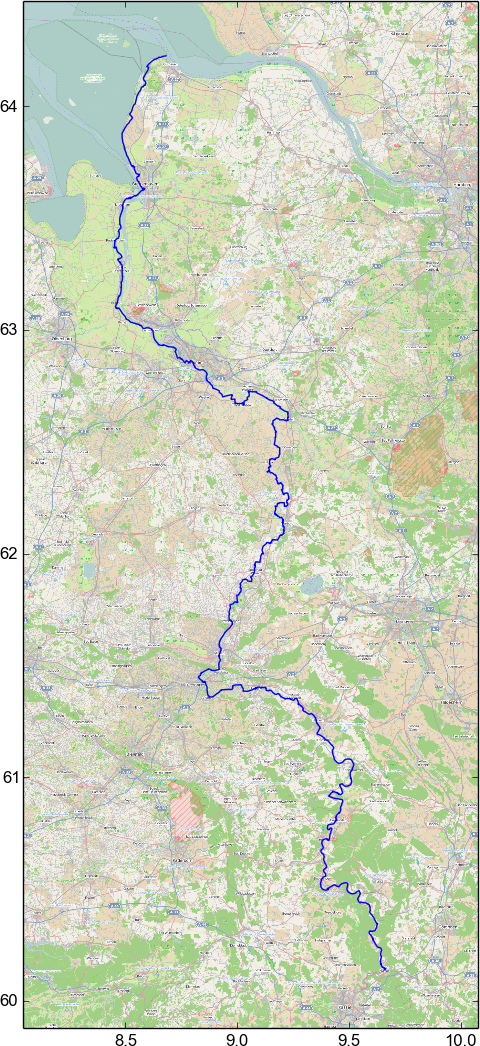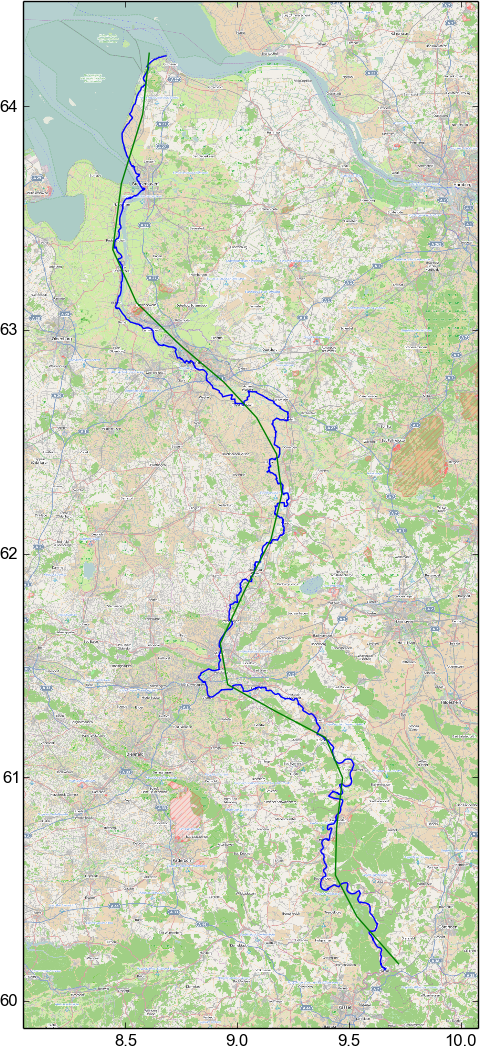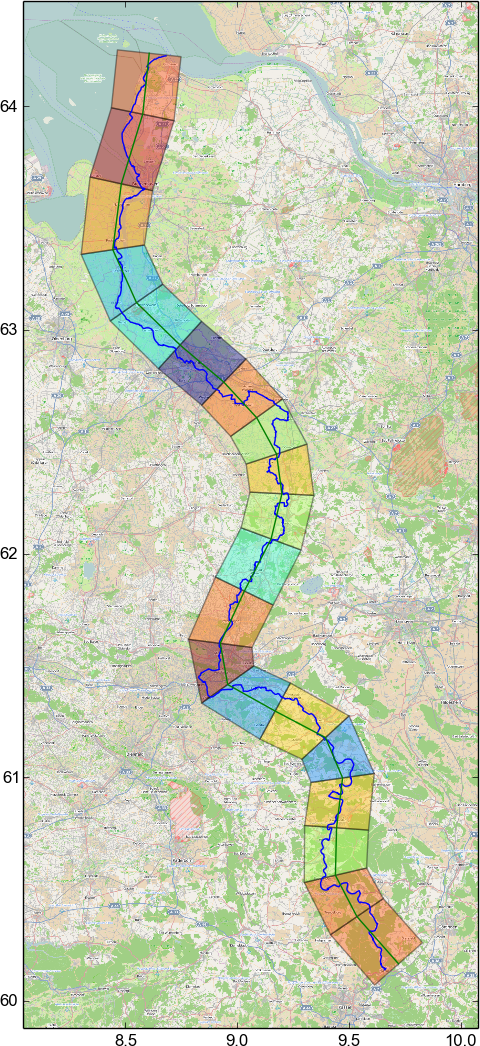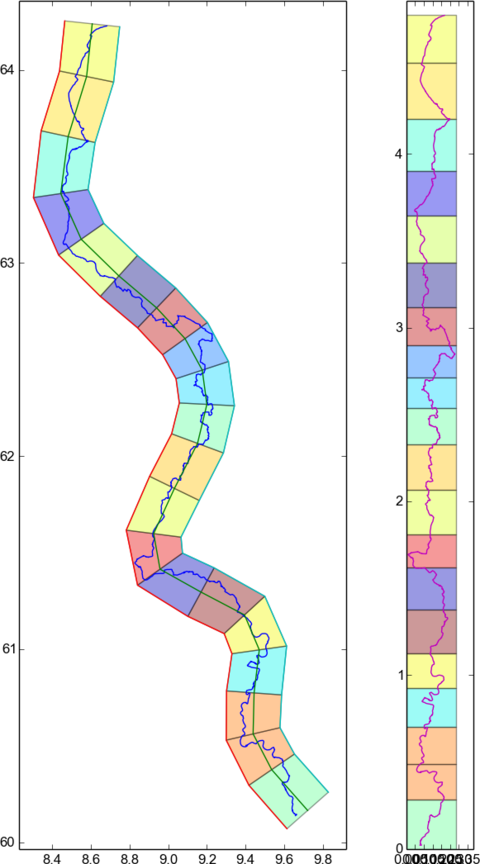
TLDR: With the help of Helmut Grohne I finally figured out most of the bits
necessary to unshare everything without becoming root (though one might say
that this is still cheated because the suid root tools
newuidmap and
newgidmap
are used). I wrote a Perl script which documents how this is done in practice.
This script is nearly equivalent to using the existing commands
lxc-usernsexec
[opts] -- unshare [opts] -- COMMAND except that these two together cannot be
used to mount a new proc. Apart from this problem, this Perl script might also
be useful by itself because it is architecture independent and easily
inspectable for the curious mind without resorting to sources.debian.net (it is
heavily documented at nearly 2 lines of comments per line of code on average).
It can be retrieved here at
https://gitlab.mister-muffin.de/josch/user-unshare/blob/master/user-unshare
Long story: Nearly two years after my last
last rant about everything needing
superuser privileges in
Linux,
I'm still interested in techniques that let me do more things without becoming
root. Helmut Grohne had told me for a while about unshare(), or user namespaces
as the right way to have things like chroot without root. There are also
reports of LXC containers working without root privileges but they are hard to
come by. A couple of days ago I had some time again, so Helmut helped me to get
through the major blockers that were so far stopping me from using unshare in a
meaningful way without executing everything with
sudo.
My main motivation at that point was to let
dpkg-buildpackage when executed
by
sbuild be run with an unshared network namespace and thus without network
access (except for the loopback interface) because like pbuilder I wanted
sbuild to enforce the rule not to access any remote resources during the build.
After several evenings of investigating and doctoring at the Perl script I
mentioned initially, I came to the conclusion that the only place that can
unshare the network namespace without disrupting anything is schroot itself.
This is because unsharing
inside the chroot will fail because
dpkg-buildpackage is run with non-root privileges and thus the user namespace
has to be unshared. But this then will destroy all ownership information. But
even if that wasn't the case, the chroot itself is unlikely to have (and also
should not) tools like
ip or
newuidmap and
newgidmap installed. Unsharing
the schroot call itself also will not work. Again we first need to unshare the
user namespace and then schroot will complain about wrong ownership of its
configuration file
/etc/schroot/schroot.conf. Luckily, when contacting Roger
Leigh about this wishlist feature in
bug#802849 I was told that this was already
implemented in its git master \o/. So this particular problem seems to be taken
care of and once the next schroot release happens, sbuild will make use of it
and have
unshare --net capabilities just like
pbuilder already had since
last year.
With the sbuild case taken care of, the rest of this post will introduce
the
Perl script I wrote.
The name
user-unshare is really arbitrary. I just needed some identifier for
the git repository and a filename.
The most important discovery I made was, that Debian disables unprivileged user
namespaces by default with the patch
add-sysctl-to-disallow-unprivileged-CLONE_NEWUSER-by-default.patch to the
Linux kernel. To enable it, one has to first either do
echo 1 sudo tee /proc/sys/kernel/unprivileged_userns_clone > /dev/null
or
sudo sysctl -w kernel.unprivileged_userns_clone=1
The tool tries to be like unshare(1) but with the power of lxc-usernsexec(1) to
map more than one id into the new user namespace by using the programs
newgidmap and
newuidmap. Or in other words: This tool tries to be like
lxc-usernsexec(1) but with the power of unshare(1) to unshare more than just
the user and mount namespaces. It is nearly equal to calling:
lxc-usernsexec [opts] -- unshare [opts] -- COMMAND
Its main reason of existence are:
- as a project for me to learn how unprivileged namespaces work
- written in Perl which means:
- architecture independent (same executable on any architecture)
- easily inspectable by other curious minds
- tons of code comments to let others understand how things work
- no need to install the lxc package in a minimal environment (perl itself
might not be called minimal either but is present in every Debian
installation)
- not suffering from being unable to mount proc
I hoped that
systemd-nspawn could do what I wanted but it seems that its
requirement for being run as root will
not change any time
soon
Another tool in Debian that offers to do chroot without superuser privileges is
linux-user-chroot but that one cheats by being suid root.
Had I found
lxc-usernsexec earlier I would've probably not written this. But
after I found it I happily used it to get an even better understanding of the
matter and further improve the comments in my code. I started writing my own
tool in Perl because that's the language sbuild was written in and as mentioned
initially, I intended to use this script with sbuild. Now that the sbuild
problem is taken care of, this is not so important anymore but I like if I can
read the code of simple programs I run directly from /usr/bin without having to
retrieve the source code first or use sources.debian.net.
The only thing I wasn't able to figure out is how to properly mount proc into
my new mount namespace. I found a workaround that works by first mounting a new
proc to
/proc and then bind-mounting
/proc to whatever new location for
proc is requested. I didn't figure out how to do this without mounting to
/proc first partly also because this doesn't work at all when using
lxc-usernsexec and
unshare together. In this respect, this perl script is a
bit more powerful than those two tools together. I suppose that the reason is
that
unshare wasn't written with having being called without superuser
privileges in mind. If you have an idea what could be wrong, the code has a big
FIXME about this issue.
Finally, here a demonstration of what my script can do. Because of the
/proc
bug,
lxc-usernsexec and
unshare together are not able to do this but it
might also be that I'm just not using these tools in the right way. The
following will give you an interactive shell in an environment created from one
of my sbuild chroot tarballs:
$ mkdir -p /tmp/buildroot/proc
$ ./user-unshare --mount-proc=/tmp/buildroot/proc --ipc --pid --net \
--uts --mount --fork -- sh -c 'ip link set lo up && ip addr && \
hostname hoothoot-chroot && \
tar -C /tmp/buildroot -xf /srv/chroot/unstable-amd64.tar.gz; \
/usr/sbin/chroot /tmp/buildroot /sbin/runuser -s /bin/bash - josch && \
umount /tmp/buildroot/proc && rm -rf /tmp/buildroot'
(unstable-amd64-sbuild)josch@hoothoot-chroot:/$ whoami
josch
(unstable-amd64-sbuild)josch@hoothoot-chroot:/$ hostname
hoothoot-chroot
(unstable-amd64-sbuild)josch@hoothoot-chroot:/$ ls -lha /proc head
total 0
dr-xr-xr-x 218 nobody nogroup 0 Oct 25 19:06 .
drwxr-xr-x 22 root root 440 Oct 1 08:42 ..
dr-xr-xr-x 9 root root 0 Oct 25 19:06 1
dr-xr-xr-x 9 josch josch 0 Oct 25 19:06 15
dr-xr-xr-x 9 josch josch 0 Oct 25 19:06 16
dr-xr-xr-x 9 root root 0 Oct 25 19:06 7
dr-xr-xr-x 9 josch josch 0 Oct 25 19:06 8
dr-xr-xr-x 4 nobody nogroup 0 Oct 25 19:06 acpi
dr-xr-xr-x 6 nobody nogroup 0 Oct 25 19:06 asound
Of course instead of running this long command we can also instead write a
small shell script and execute that instead. The following does the same things
as the long command above but adds some comments for further explanation:
#!/bin/sh
set -exu
# I'm using /tmp because I have it mounted as a tmpfs
rootdir="/tmp/buildroot"
# bring the loopback interface up
ip link set lo up
# show that the loopback interface is really up
ip addr
# make use of the UTS namespace being unshared
hostname hoothoot-chroot
# extract the chroot tarball. This must be done inside the user namespace for
# the file permissions to be correct.
#
# tar will fail to call mknod and to change the permissions of /proc but we are
# ignoring that
tar -C "$rootdir" -xf /srv/chroot/unstable-amd64.tar.gz true
# run chroot and inside, immediately drop permissions to the user "josch" and
# start an interactive shell
/usr/sbin/chroot "$rootdir" /sbin/runuser -s /bin/bash - josch
# unmount /proc and remove the temporary directory
umount "$rootdir/proc"
rm -rf "$rootdir"
and then:
$ mkdir -p /tmp/buildroot/proc
$ ./user-unshare --mount-proc=/tmp/buildroot/proc --ipc --pid --net --uts --mount --fork -- ./chroot.sh
As mentioned in the beginning, the tool is nearly equivalent to calling
lxc-usernsexec [opts] -- unshare [opts] -- COMMAND but because of the problem
with mounting proc (mentioned earlier),
lxc-usernsexec and
unshare cannot
be used with above example. If one tries anyways one will only get:
$ lxc-usernsexec -m b:0:1000:1 -m b:1:558752:1 -- unshare --mount-proc=/tmp/buildroot/proc --ipc --pid --net --uts --mount --fork -- ./chroot.sh
unshare: mount /tmp/buildroot/proc failed: Invalid argument
I'd be interested in finding out why that is and how to fix it.
 TLDR: mister-muffin.de (and all its subdomains), bootstrap.debian.net and
binarycontrol.debian.net are now finally signed by "Let's Encrypt Authority X1"
\o/
I just tried out the letsencrypt client Debian packages prepared by Harlan
Lieberman-Berg which can be found here:
My server setup uses Pound as a reverse proxy in
front of a number of LXC based containers running the actual services.
Furthermore, letsencrypt only supports Nginx and Apache for now, so I had to
manually setup things anyways. Here is how.
After installing the Debian packages I built from above git repositories, I ran
the following commands:
TLDR: mister-muffin.de (and all its subdomains), bootstrap.debian.net and
binarycontrol.debian.net are now finally signed by "Let's Encrypt Authority X1"
\o/
I just tried out the letsencrypt client Debian packages prepared by Harlan
Lieberman-Berg which can be found here:
My server setup uses Pound as a reverse proxy in
front of a number of LXC based containers running the actual services.
Furthermore, letsencrypt only supports Nginx and Apache for now, so I had to
manually setup things anyways. Here is how.
After installing the Debian packages I built from above git repositories, I ran
the following commands:
 What happened in the
What happened in the 
 Package reviews
103
Package reviews
103  A big update of all related packages (tex-common 6.04, texlive-bin 2015.20150524.37493-7, texlive-base/lang/extra package 2015.20151016-1) due to the move to support multi-arch. Of course, the regular updates of the TeX Live are included, too. With this change it should be possible to run a multi-arch system with only one TeX Live installed.
A big update of all related packages (tex-common 6.04, texlive-bin 2015.20150524.37493-7, texlive-base/lang/extra package 2015.20151016-1) due to the move to support multi-arch. Of course, the regular updates of the TeX Live are included, too. With this change it should be possible to run a multi-arch system with only one TeX Live installed.
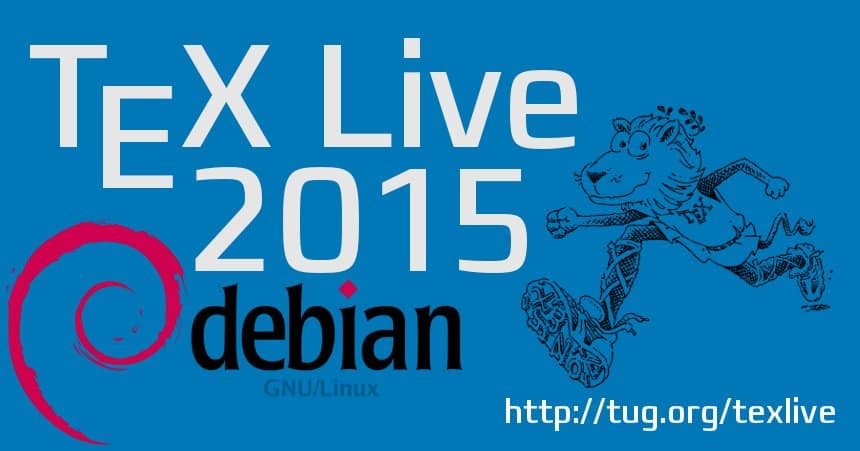 Thanks to the excellent support and testing of the Multi-arch guys, in particular Thorsten Glaser, Helmut Grohne, Johannes Schauer, and Wookey, I learned a lot about multi-arch, and I hope that the current setup is safe. All the packages but the various lib* packages are tagged as Multi-Arch: foreign, while the lib packages are tagged Multi-Arch: same. Anyway, if you find a bug concerning multi-arch, that is that some of the programs exhibit architecture information, please let us know via a bug report.
Updated packages
acro, alegreya, amiri, assoccnt, attachfile, babel-french, babel-hungarian, barr, beebe, biblatex-philosophy, bidi, bnumexpr, caption, chemfig, chemformula, chemmacros, cjk-gs-integrate, csplain, dantelogo, dataref, dtxgen, dvipdfmx-def, dvips, eledmac, elements, fcolumn, fithesis, fontspec, genealogytree, gradstudentresume, gtl, jfontmaps, knuth-local, koma-script, kotex-oblivoir, kotex-plain, kotex-utf, kpathsea, l3build, l3experimental, l3kernel, l3packages, latex, latexconfig, ledmac, ltxfileinfo, lualatex-math, luamplib, luatex, luatexbase, luatexja, luatexko, make4ht, mcf2graph, mflogo, modiagram, multiexpand, newtx, odsfile, old-arrows, paracol, pdfpages, pdftex, plain, pst-stru, pxchfon, randomwalk, reledmac, resumecls, rubik, selnolig, showhyphens, siunitx, suftesi, tetex, teubner, tex4ebook, tex4ht, texlive-scripts, tikzsymbols, tipfr, tools, tudscr, uassign, unicode-math, unravel, visualfaq, xepersian, xetex-def, xint.
New packages
archaeologie, ctablestack, dynamicnumber, exercises, fibeamer, h2020proposal, imfellenglish, lstbayes, tempora, xellipsis.
Enjoy.
Thanks to the excellent support and testing of the Multi-arch guys, in particular Thorsten Glaser, Helmut Grohne, Johannes Schauer, and Wookey, I learned a lot about multi-arch, and I hope that the current setup is safe. All the packages but the various lib* packages are tagged as Multi-Arch: foreign, while the lib packages are tagged Multi-Arch: same. Anyway, if you find a bug concerning multi-arch, that is that some of the programs exhibit architecture information, please let us know via a bug report.
Updated packages
acro, alegreya, amiri, assoccnt, attachfile, babel-french, babel-hungarian, barr, beebe, biblatex-philosophy, bidi, bnumexpr, caption, chemfig, chemformula, chemmacros, cjk-gs-integrate, csplain, dantelogo, dataref, dtxgen, dvipdfmx-def, dvips, eledmac, elements, fcolumn, fithesis, fontspec, genealogytree, gradstudentresume, gtl, jfontmaps, knuth-local, koma-script, kotex-oblivoir, kotex-plain, kotex-utf, kpathsea, l3build, l3experimental, l3kernel, l3packages, latex, latexconfig, ledmac, ltxfileinfo, lualatex-math, luamplib, luatex, luatexbase, luatexja, luatexko, make4ht, mcf2graph, mflogo, modiagram, multiexpand, newtx, odsfile, old-arrows, paracol, pdfpages, pdftex, plain, pst-stru, pxchfon, randomwalk, reledmac, resumecls, rubik, selnolig, showhyphens, siunitx, suftesi, tetex, teubner, tex4ebook, tex4ht, texlive-scripts, tikzsymbols, tipfr, tools, tudscr, uassign, unicode-math, unravel, visualfaq, xepersian, xetex-def, xint.
New packages
archaeologie, ctablestack, dynamicnumber, exercises, fibeamer, h2020proposal, imfellenglish, lstbayes, tempora, xellipsis.
Enjoy.
 Thanks to akira for the confetti to celebrate the occasion!
Thanks to akira for the confetti to celebrate the occasion!



